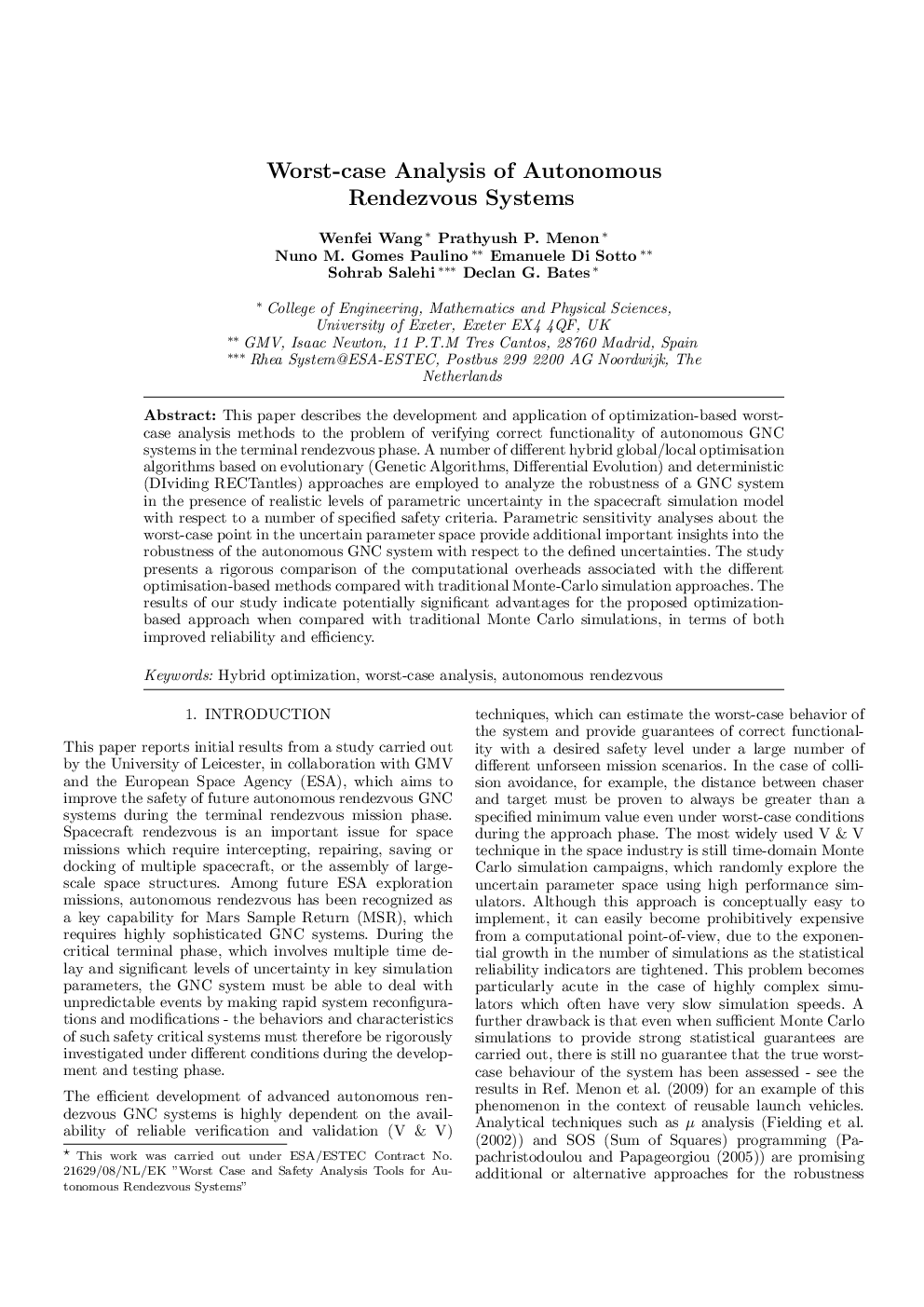| Article ID | Journal | Published Year | Pages | File Type |
|---|---|---|---|---|
| 716081 | IFAC Proceedings Volumes | 2010 | 6 Pages |
This paper describes the development and application of optimization-based worst-case analysis methods to the problem of verifying correct functionality of autonomous GNC systems in the terminal rendezvous phase. A number of different hybrid global/local optimisation algorithms based on evolutionary (Genetic Algorithms, Differential Evolution) and deterministic (DIviding RECTantles) approaches are employed to analyze the robustness of a GNC system in the presence of realistic levels of parametric uncertainty in the spacecraft simulation model with respect to a number of specified safety criteria. Parametric sensitivity analyses about the worst-case point in the uncertain parameter space provide additional important insights into the robustness of the autonomous GNC system with respect to the defined uncertainties. The study presents a rigorous comparison of the computational overheads associated with the different optimisation-based methods compared with traditional Monte-Carlo simulation approaches. The results of our study indicate potentially significant advantages for the proposed optimization-based approach when compared with traditional Monte Carlo simulations, in terms of both improved reliability and efficiency.
